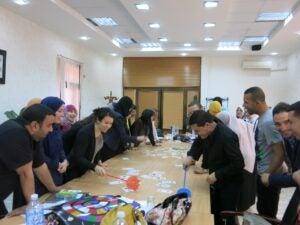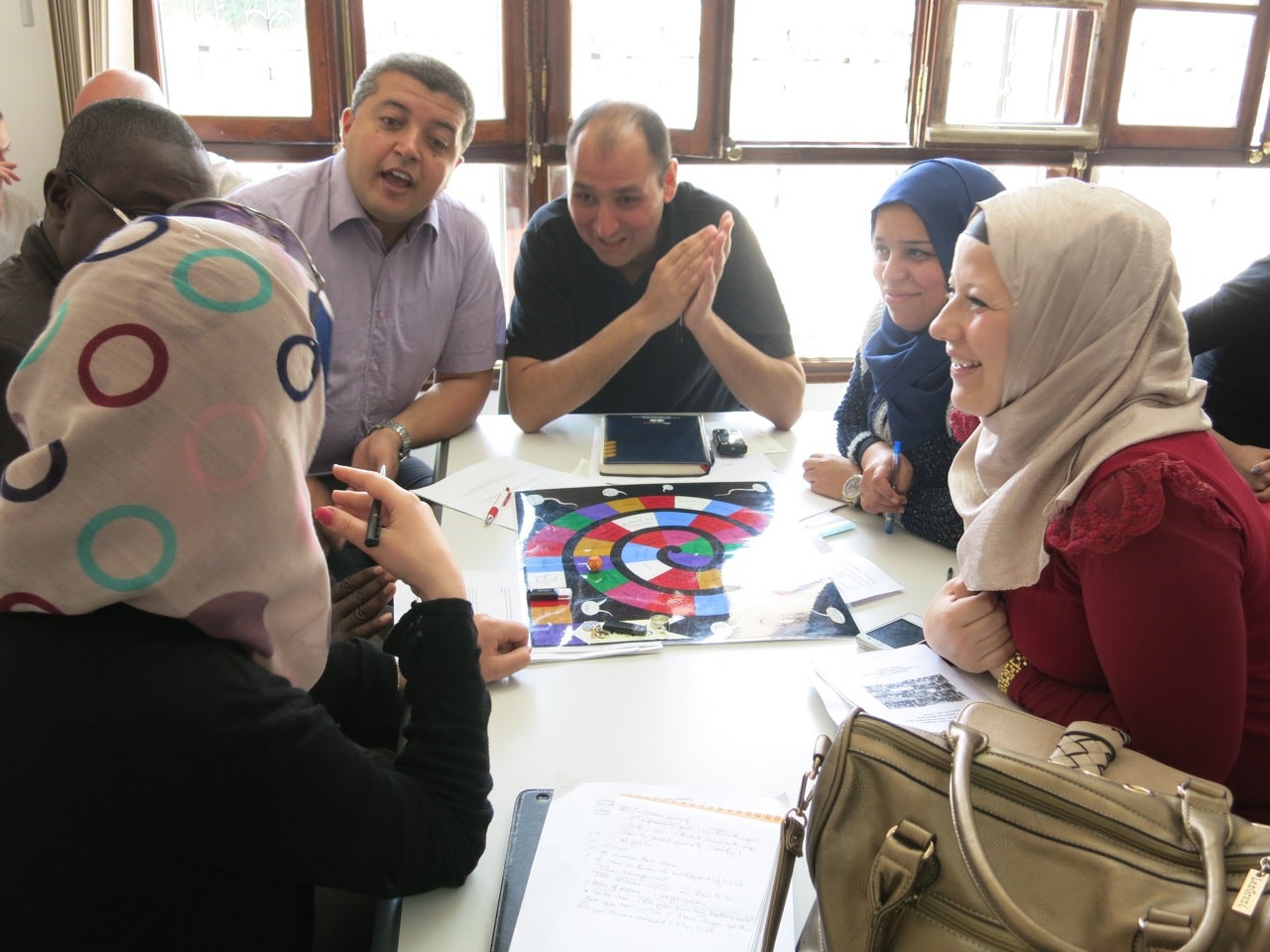English Language Specialist Dorothy Zemach traveled to Morocco and Algeria to lead teacher training workshops. In her own words, Zamach describes the flexibility needed while traveling abroad and the impact her work had on just one Moroccan teacher.
“After having done a few Specialist trips, I’ve learned to expect the unexpected and to travel with more material—and different material—than what I think I’ll need. This can include everything from conference presentations to teacher training workshops to classroom teaching materials.
I was invited to be a keynote speaker for the Young Learners conference in Tiznit, Morocco. It wasn’t until I had arrived, and the conference had already started, that I noticed I had also been put down for a second presentation—but not on a topic that I thought would suit the conference (the organizers had instead taken a topic from a seminar I was planning to give a small select audience in another city). “May I change the topic to something of more interest and relevance to the greater audience?” I asked, and the conference organizers happily agreed.
Since I write and edit ELT textbooks, I chose to speak on “Getting the Most from your Coursebook,” a variation of a workshop I’ve given before to soon-to-graduate teacher training candidates. It’s very basic, practical stuff; techniques for presenting and practicing dialogues that go beyond “listen and repeat” and “now practice in pairs.” I talk about how to exploit artwork and how to build in more writing practice; how to maximize class time and what makes sensible homework assignments.
 After the talk, one of the audience members came up to me. “I’ve been coming to these conferences for twenty years,” he said, “and I’ve heard a lot of presentations.” Uh-oh, I worried, he’s upset that he’s just heard a talk aimed at newer teachers. “And finally, I hear some information I can use in my class. Thank you!” It was a good reminder to me that what might seem “basic” in one context is not necessarily basic in another. Highly educated teachers might have a strong background in theoretical linguistics or pedagogy and be craving practical activities to teach process writing or practice intensive reading skills. Or teachers without formal training might be wishing for some pedagogical underpinnings or to know what the latest research on assessment shows. What’s familiar to you can still be new, and of great value, to others.”
After the talk, one of the audience members came up to me. “I’ve been coming to these conferences for twenty years,” he said, “and I’ve heard a lot of presentations.” Uh-oh, I worried, he’s upset that he’s just heard a talk aimed at newer teachers. “And finally, I hear some information I can use in my class. Thank you!” It was a good reminder to me that what might seem “basic” in one context is not necessarily basic in another. Highly educated teachers might have a strong background in theoretical linguistics or pedagogy and be craving practical activities to teach process writing or practice intensive reading skills. Or teachers without formal training might be wishing for some pedagogical underpinnings or to know what the latest research on assessment shows. What’s familiar to you can still be new, and of great value, to others.”

